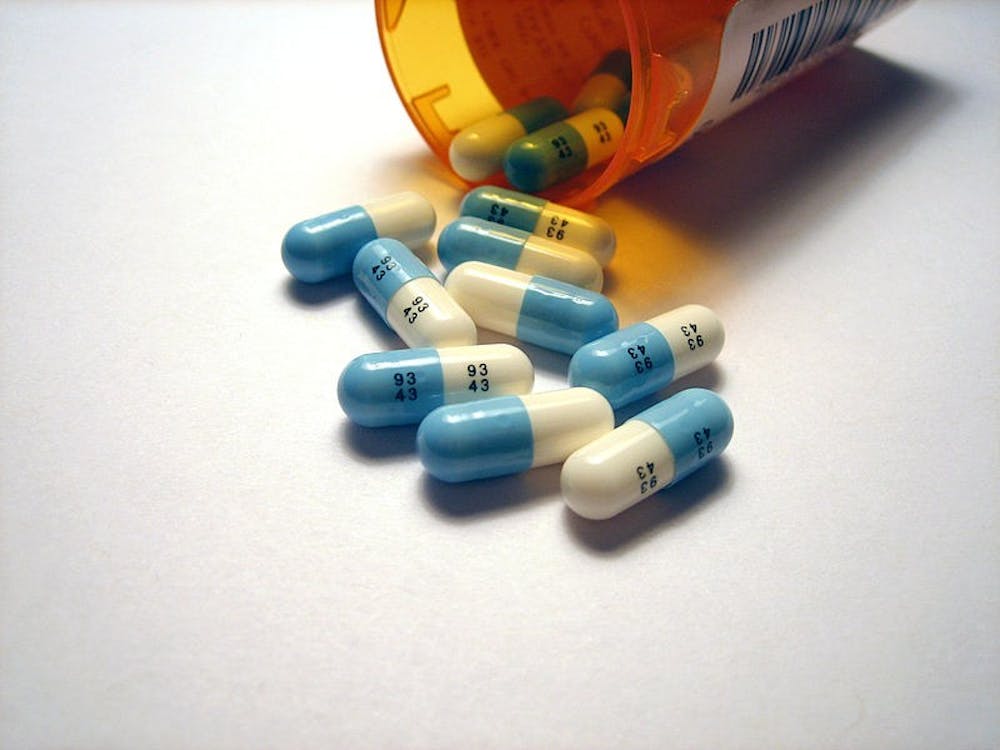By MANISH PARANJPE For The News-Letter
A hallmark of HIV-positive individuals is a compromised immune system, which renders their bodies incapable of fighting infections. Daraprim is a pharmaceutical used as a life-saving therapy against Toxoplasma gondii infections, commonly found in the HIV community. Last month, however, the CEO of Turing pharmaceuticals, Martin Shkreli, made headlines when his company announced that it would raise the price of Daraprim more than 5,000 percent.
The Toxoplasma gondii infection is an example of a rare disease. Shkreli’s price hike has opened a debate over the pricing of rare drugs. Rare medical conditions, including lethal infections such as toxoplasmosis and neurological diseases like amyotrophic lateral sclerosis (ALS), are often neglected by doctors and pharmaceutical companies, according to Jeffrey Aronson, the chairman of the editorial board of the British Journal of Clinical Pharmacology.
In order to incentivize pharmaceutical companies to develop therapies for rare diseases, Congress passed the Orphan Drug Act (ODA) in 1983.
“The ODA created financial incentives for drug and biologics manufacturers, including tax credits for costs of clinical research, government grant funding, assistance for clinical research, and a seven-year period of exclusive marketing given to the first sponsor of an orphan-designated product who obtains market approval from the Food and Drug Administration [to produce orphan drugs],” the Food and Drug Administration (FDA)’s website says.
Daraprim was developed more than 50 years ago, and so its patent is long expired. Shkreli andhis company bought the rights to market Daraprim earlier this year. This has allowed them to increase the price of Daraprim. Even without a patent regulating the production of Daraprim or other generic versions, few third-party alternatives to Daraprim exist to date.
Gerard Anderson, a professor of Health Policy and Management and of International Health at the Bloomberg School of Public Health, has written two books on health care payment policy and authored over 250 journal articles.
“Any drug manufacturer can sell [a generic version of Daraprim] if they get FDA approval,” Anderson said. “The drug is off patent. Generic drugs have low prices when there are several participants in the market. Daraprim is an example of a generic drug without competition. Turing saw this lack of competition and pounced.”
Shkreli’s move last month raised anger from politicians and pharmaceutical industry insiders alike. Presidential candidate Hillary Clinton demanded that Shkreli lower the cost of Daraprim today back to what it once was.
“If you’re price gouging American families and jacking up costs for no good reason, I’m going to hold you accountable,” Clinton wrote on Facebook.
In response to criticism that Turing pharmaceuticals and others are engaging in unethical price gouging, Shkreli explained that the money made from the sale of Daraprim will provide a financial incentive for his company to bring more drugs to the market through research and development.
“We spend more than 50 percent of our revenue on R&D,” Shkreli wrote on Twitter. “Please get your facts straight before lumping us in with others.”
Anderson disagrees with Shkreli’s claim that the profits from the sale of Daraprim are needed to cover the company’s research and development costs.
“Anytime the prices are increased by 5,000 percent and there is no rationale to justify the price increase than clearly something is wrong with the system,” he said.
“There is simply no economic rationale for a price increase for a drug that has been around for over 50 years aside from greed. To argue that the profits will be used for developing a new drug is simply not believable since this is a generic product and the company does not develop new drugs.”
In response to Turing’s price increase, San Diego-based pharmaceutical company Imprimis announced last week that it would market a modified version of Daraprim for about $1 per tablet, far lower than Turing’s $750 per tablet. Imprimis’s formulation is a combination consisting of pyrimethamine, the active compound in Daraprim, and leucovorin, a folic acid derivative.
Unlike Daraprim, Imprimis’s version is a compounded pharmaceutical, meaning that each patient will receive an individualized, dose-titrated form of the drug.
“Shkreli has the patent on Daraprim, but he does not have the patent on bulk substance pyrimethamine,” Gigi Davidson, the chair of U.S. Pharmacopeia’s Compounding Expert Committee, said in a statement to Forbes. “[Selling] compound patient-specific capsules with leucovorin in them does not violate any federal or state laws regarding compounding.”
Imprimis CEO Mark Baum hopes that his company’s alternative to Daraprim will end or decrease the practice of raising drug prices by competing with Daraprim for market share, according to Forbes.
“We don’t need price-fixing or price controls,” he told the publication. “This is a market-based solution. We can reach a pricing equilibrium using competitive practices.”





